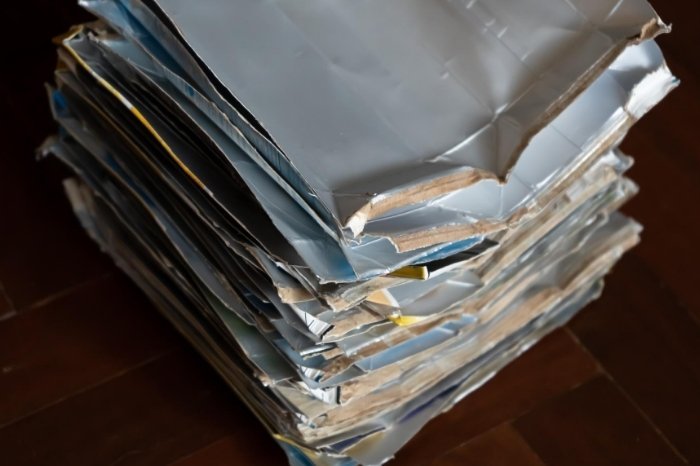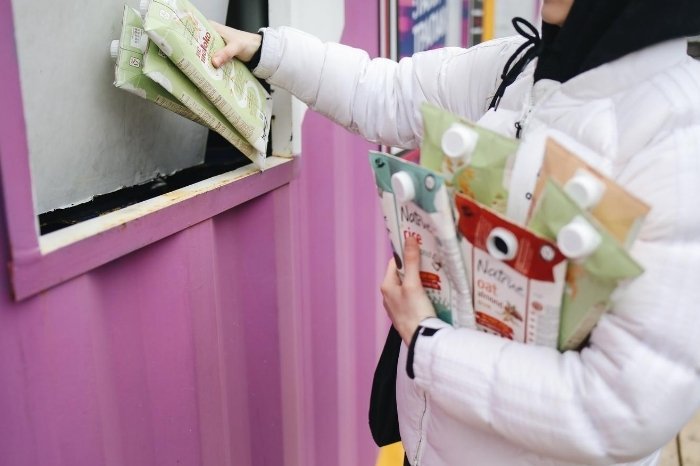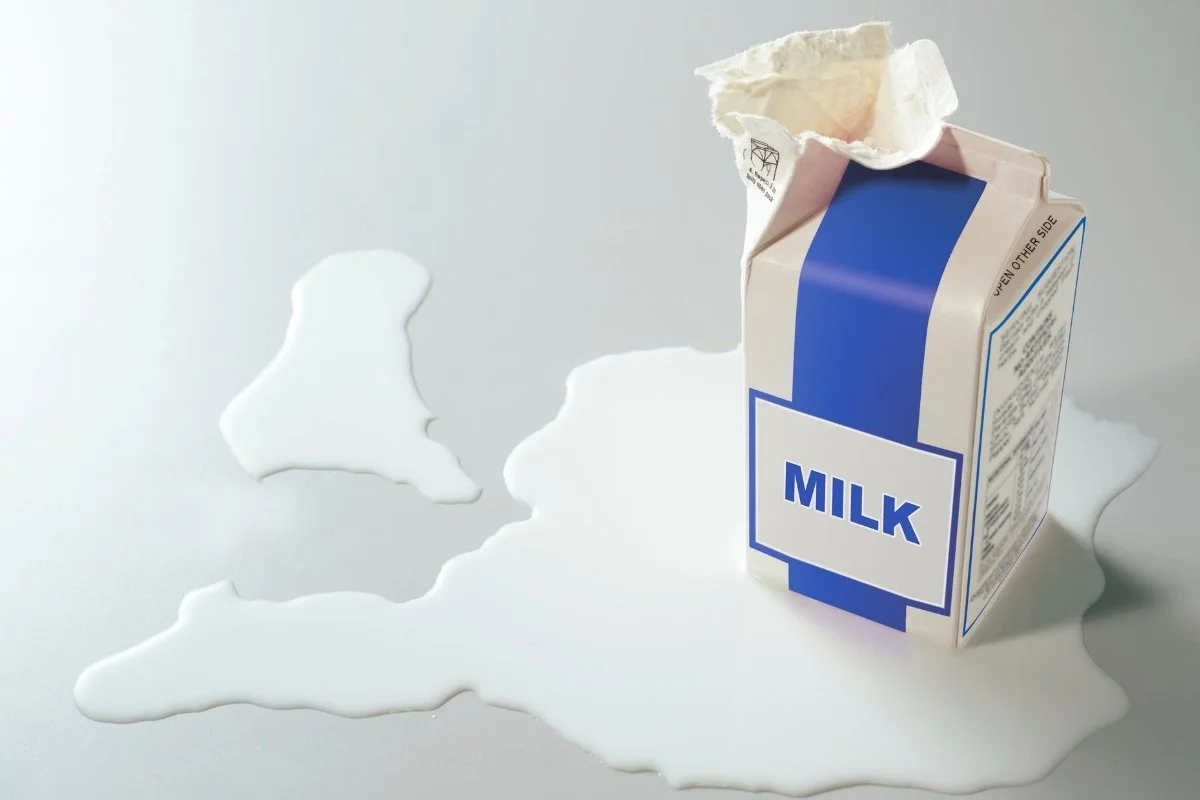Last Updated on October 18, 2024
Materials such as glass, aluminum, plastic, paper, as well as beverage and food cartons can be recycled. Thus, if you are one of the many who constantly has the question “are milk cartons recyclable?” in mind, then the answer is YES!
Milk, as well as juice, soup, broth, and other food and beverages in carton packaging, are all recyclable.
Table of Contents
The Two Types of Food and Beverage Cartons
Refrigerated cartons, as the name suggests, are basically placed in refrigerators in supermarkets and grocery shops. They usually contain products such as juice, fresh milk, cream, and other food and beverage products that require constant low temperatures.

On the other hand, shelf-stable cartons are usually placed on store shelves. Shelf-stable cartons mainly contain processed milk, soy drink, broth, soup, juice, and other food or drink items that can be stored at room temperature.
Food and beverage products in cartons are highly efficient. Their product-to-packaging ratio is 94% product and 6% packaging. As a result, these products require less natural resources for transportation which then means there is less fuel consumption. As a result, there’s minimal greenhouse gas emission.
Then, Are Milk Cartons Recyclable? and How to Recycle Them?
Cartons are mainly made up of layered paper, plastic, and aluminum materials. Typically, shelf-stable cartons have 74% paper, 22% plastic, and about 4% aluminum. Refrigerated cartons, on the other hand, don’t have an aluminum layer in them; instead, they have about 80% of paper and 20% plastic.
Both types of cartons can be recycled. As a consumer, recycling cartons is as easy as ABC. All you need to do is toss the carton to your recycling bin once you’ve used up the product inside and have it collected by your local recycling crew.
Carton makers in the United States are committed to increasing carton recycling access by ensuring that the components used to make their cartons are reusable once the consumer uses up the product in it.
Why is Recycling Cartons Important?
All forms of recycling are extremely beneficial for the environment. It minimizes the amount of garbage being piled up on landfills on a daily basis.
According to the Environmental Protection Agency (EPA), there is a total of about 267.8 million tons of municipal solid waste in 2017 wherein an approximate of 27 million tons were composted and about 67 million tons were recycled.
Given that most carton packaging is made from high-quality material, it is also ideal for remanufacturing. The materials used to make cartons mainly aluminum, plastic, and paper are all recyclable, but separating those three components during the recycling process can be quite challenging.
How Does The Recycling Process Work?
The recovery facility will separate the cartons from other waste materials. These cartons are then transported to paper mills wherein they are mixed with water in a hydra-pulper. This separates the three materials of cartons: paper, aluminum, and plastic.

Once the separation process is done, the paper fiber is then converted into other products such as office paper, toilet paper, and even construction materials.
Conclusion
Consumers play a pivotal role in the carton manufacturers’ goal to recycle more. As a sustainable shopper, all you need to do is to buy products that come in recyclable packaging materials such as cartons. It is also your due diligence to gather all your emptied packaging in a recycling bin and send it to your local recycling service.
Furthermore, now that you have the right knowledge about this topic, you can now provide a more informative answer if someone asks you, “Are milk cartons recyclable?”.

Barbara is an environmental activist and sustainability advocate who loves living green and sustainable. She firmly believes in reducing her carbon footprint and has been making great strides towards achieving this goal. Barbara is a vegan and avid recycler and has been actively involved in community gardens and other green initiatives. She is passionate about spreading awareness about the importance of living in a sustainable and eco-friendly manner. Barbara is always looking for ways to make a difference in her community and beyond. She is a huge advocate for preserving nature and the planet for future generations.

